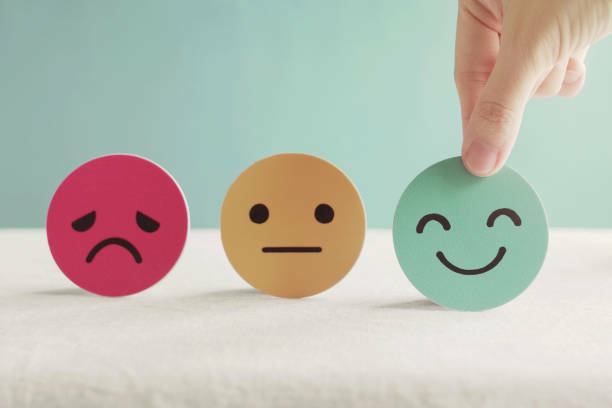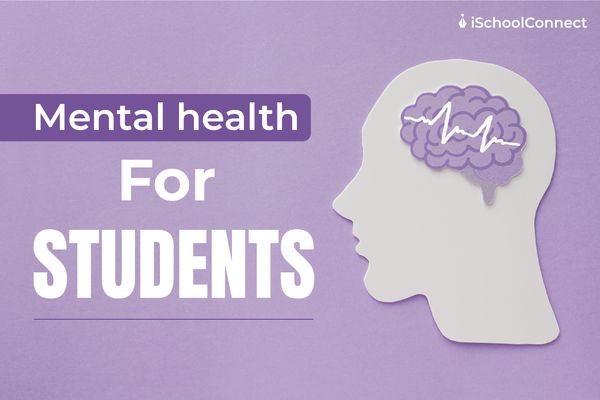Table of Contents
Multiple studies indicate the predominance of mental health issues in our society. This holds true for especially the youth. Many students find going to school and college a challenging experience and feel that it’s hard to cope up with today’s fast-paced world.
With the advancement in technology and the economy, the need for an educated workforce is rapidly growing. This has increased competition and made education and top grades a prerequisite for leading a comfortable life. Students are constantly bombarded with psychological and cognitive challenges that endanger their emotional and mental well-being. These challenges need to be addressed.
But before we do that, let’s first understand…
#1 What is mental health?
Mental health refers to our social, psychological, and emotional well-being. The way we respond to difficulties, our ability to think, behave and analyze a situation – all of these contribute to our mental health.
If you are in a healthy mental state, then your chances of leading a happy life automatically improve. You are able to cope well with day-to-day stresses and effectively contribute to your community for the better.
#2 Why is good mental health important for students?
You need to feel happy and fulfilled to enjoy and live your life to the fullest. Many students struggle with poor self-esteem as a result of traumatic childhood experiences or poor upbringing. Traumatic events early on in life can be hard to work through and may linger on for a long time. Therefore, it is important that students have the space and resources to understand and address their issues in a timely manner.
#3 Factors that affect mental health in students
Here’s a list of factors that might play a role in affecting a student’s mental health-
- Biological factors. If a family member suffers with an existing mental health issue, there are chances of it being passed down genetically.
- Environmental factors. When a child is not exposed to a healthy home environment, they may develop mental illnesses. This could be due to the emotional unavailability of the parents, financial stress, academic strain, etc. Introduction to stressors like alcohol, drugs and other toxins at an early age may also lead to mental health illnesses.
- Abuse: If a child is abused physically or emotionally, then it is likely that they will carry the traumatic experience with them and develop mental illnesses as they grow older.

#4 Recognizing the signs
Recognizing the signs of mental health problems is often difficult due to the transient nature of these symptoms. The emotions you feel when you’re going through depression or anxiety are often very similar to our regular emotions. But their intensity, period, and recurrence may differ. This is further compounded by the fact that students tend to downplay or avoid talking about things that truly bother them.
Common signs to look out for–
- Sudden changes in appearance. These can be weight loss or gain, paleness, bloodshot eyes, hair fall, teeth staining, etc.
- Development of abnormal behaviors. These behaviors include lack of concentration, unwillingness to participate in social situations, apologizing profusely for no apparent reason, irrational fear or anxiety, talking of “going away,” etc.
- Physical symptoms without any physical conditions. Like headaches, body aches, upset stomach, constipation, breathing troubles, irregular heartbeat, palpitations, etc.
#5 Common mental health conditions and their symptoms
Given below are some of the most common mental health conditions that students experience. The symptoms listed here are as classified by the American Psychological Association-
| Condition | Types | Signs and symptoms |
| Depression | Physical Symptoms. Appetite loss, insomnia or oversleeping, headache, body ache, etc. Emotional Symptoms Continuous sadness, hopelessness, feeling overwhelmed or powerless, etc. Behavioral Symptoms. Loss of concentration, diminishing enthusiasm for daily activities, erratic or listless behavior, etc. | |
| Anxiety | 1. Generalized Anxiety Disorder (GAD) 2. Obsessive-Compulsive Disorder (OCD) 3. Panic Disorder 4. Post-traumatic Stress Disorder (PTSD) 5. Social Anxiety Disorder (SAD) | Unreasonable apprehension Stress, Irritability Poor concentration Dizziness and sweating Palpitations Muscle pain Headache |
| Eating disorders | 1. Anorexia 2. Nervosa 3. Bulimia 4. Pica | Distorted body image and sense of self-worth, Excessive exercise, often pushing oneself to the point of fainting Palpitations Dehydration Fear of eating in presence of other people Making excuses for eating |
| Addiction | Slurring of speech & loss of coordination Unnatural and unfounded fear or anxiety Development of behaviors and habits to fuel the abuse The sudden need for money, sometimes even leading to antisocial behaviors Development of tolerance to the substance and need to consume more of it Sudden alteration of physical appearance, including loss or gain of weight, bloodshot eyes, hair loss, staining of teeth, etc. |
#6 Reach out for help
It could be overwhelming for someone to ask for help. However, let’s face the fact that you do not need to face every battle alone.
Here’s a list of helplines and organizations you can reach out to whenever you feel like things are getting out of hand-
- Local emergency number
- Your mental health specialist
- A suicide hotline number
- A close friend or family

#7 How do I improve my mental health?
If you’ve been finding it difficult to manage your emotions lately, have been feeling on the edge for a few days now, and are unsure of how to help yourself…
Here is a list of things you can do-
- Breathe
Well, firstly “breathe” – as cliché as it may sound, breathing helps you relax and come back to the present moment.
- Share your feelings with a trusted friend or family member
It is necessary to let your feelings out. You can do so by talking to someone or by journaling about them – whichever helps you feel lighter.
- Physical exercise
Exercising every day has more benefits than you might think. The “feel good” hormones released after a workout make you feel amazing about yourself after you’re done!
- Spend time with yourself
What you choose to do in your free time is vital for your growth. Comprehending your feelings, journaling, and spending time picking up your hobbies can help you deal with situations in a much better way.
These things might help you feel better in the moment. But it’s better to reach out to a professional, and root out and resolve your issues for good.
More information
If you want to know more on how to deal with anxiety and depression, check out other articles on our blog.
Please understand that mental health conditions are not something to be embarrassed or afraid of. They can be treated if diagnosed correctly.
If you or your loved ones display one or more of the above signs consistently, do consult a mental health professional. A professional will guide you in the right direction to help alleviate this condition.






